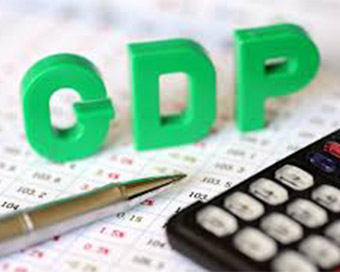Gallery
 PM Modi visit USA
PM Modi visit USA Only the mirror in my washroom and phone gallery see the crazy me : Sara Khan
Only the mirror in my washroom and phone gallery see the crazy me : Sara Khan Karnataka rain fury: Photos of flooded streets, uprooted trees
Karnataka rain fury: Photos of flooded streets, uprooted trees Cannes 2022: Deepika Padukone stuns at the French Riviera in Sabyasachi outfit
Cannes 2022: Deepika Padukone stuns at the French Riviera in Sabyasachi outfit Ranbir Kapoor And Alia Bhatt's Wedding Pics - Sealed With A Kiss
Ranbir Kapoor And Alia Bhatt's Wedding Pics - Sealed With A Kiss Oscars 2022: Every Academy Award Winner
Oscars 2022: Every Academy Award Winner Shane Warne (1969-2022): Australian cricket legend's life in pictures
Shane Warne (1969-2022): Australian cricket legend's life in pictures Photos: What Russia's invasion of Ukraine looks like on the ground
Photos: What Russia's invasion of Ukraine looks like on the ground Lata Mangeshkar (1929-2022): A pictorial tribute to the 'Nightingale of India'
Lata Mangeshkar (1929-2022): A pictorial tribute to the 'Nightingale of India' PM Modi unveils 216-feet tall Statue of Equality in Hyderabad (PHOTOS)
PM Modi unveils 216-feet tall Statue of Equality in Hyderabad (PHOTOS)The Badminton Association of India (BAI) has announced a 14-member-strong India squad for
- Men’s Sr Hockey Nationals to be played in division-based format from April 4
- Mensik denies Djokovic 100th title in Miami final
- KIPG: Son of a vegetable vendor, Bihar’s Jhandu Kumar eyes Worlds, 2028 Paralympics
- Hardik Singh credits hard work and team unity for receiving HI Midfielder of the Year award
- Djokovic, Alcaraz land in same half of Miami draw
Amid sharp GDP data revision, debate continues over its fairness Last Updated : 01 Jun 2020 08:14:59 AM IST 
file pic The sharp revision in quarterly GDP data has grabbed the eyeballs of economists and experts and the government has also received flak over it.
The debate still continues over whether the revision of the previous quarter's GDP growth numbers were justified or not.State Bank of India (SBI) Group Chief Economic Adviser, Soumya Kanti Ghosh, in a report, has questioned the data quality and 'remarkable' volatility in the new series adopted by the CSO that has led to frequent sharp revisions in GDP numbers in each of quarterly estimates with wide upward and downward swings in numbers in each of the quarter estimate from excisions.Noting that the loss of economic activity due to the lockdown in last few days of March has dragged GDP growth to a 40-quarter low of 3.1 per cent in Q4 FY20, he said: "However, CSO has significantly revised the previous quarters' growth rates (compared to Q3 release) which is quite puzzling and raises questions about data quality and remarkable volatility in the new series and we believe that a methodological note from CSO explaining the frequent revisions will be very useful."The SBI Ecowrap report, authored by Ghosh, said that in February, the quarterly numbers underwent significant upward revisions and such numbers have now been steeply revised downwards by an almost equal amount, within a span of three months."While it is customary to change the quarterly numbers in May when the 3rd estimate of FY20 is released, the extent of such revision reveals possibly the loss in Q4 because of lockdown may have been evenly distributed across quarters/Rs 1.18 lakh crore loss estimated and distributed across quarters in FY20 (Q4 accounted for only 50 per cent of such)," it said.Talking to IANS, former Chief Statistician of India Pronab Sen said that the fourth quarter numbers are fine, but the revision of the third quarter numbers was the major problem which should have been avoided as it was out of schedule."As far as changes were concerned, the changes that were released during this fourth quarter... those are fine. There is no problem at all, that is how it should be. The problem here was the change made with the third quarter data. That was problematic, that was off schedule."He explained that as per the normal schedule, the quarterly data is not changed till the provisional estimates of the year are released in June."But prior to that, the three quarters data is not changed. When the provisional annual data is released, then the quarterly data has to be changed so that there is consistency between the four quarters and the annual figures. That is the standard operating procedure... now that got violated this year," Sen said.N.R. Bhanumurthy, Professor at the National Institute of Public Finance and Policy, however, noted that official GDP data has revisions and this is the third revision, which is called provisional estimates. He was of the view that revision in previous quarters' GDP numbers should not be a matter of concern as it is a routine process.On the concerns regarding the quality of data, he said that improving the quality of data is a work in progress as the country is now getting into a new data basis.Bhanumurthy, who is also a member of the Advisory Committee on National Accounts Statistics (ACNAS), said: "We are now getting into a much more wider data sense in getting the GDP numbers. I would say it's still a long way to go. The contribution of the informal sector is always taken on a pro-rata basis based on some survey done in 2011-12... those things need to be updated."He was of the view that the problems would have existed in the old GDP data calculation methodology.Bhanumurthy noted that the GST data is not given in a "disaggregated level" which is also a major obstacle in getting accurate data."Previously, we used to use indirect tax data, now we don't get that kind of a granularity. There used to be VAT separately, there used to be service tax separately. GST is a combination of that, we don't know what is goods and what is services," he added.IANS New Delhi For Latest Updates Please-
Join us on
Follow us on








172.31.16.186







